Empowering elementary school students and problem solving training

This autumn, the Erasmus+ project Island Schools was completed, where staff members from the Faculty of Education along with students and staff from the elementary school in Hrísey participated. The project started in 2020 and established a partnership between elementary schools in island communities in Europe, on innovation in education and active participation of students in society. The goal of the project was to provide students with ambitious educational opportunities and empower them to make an impact on the urgent challenges that island communities face in the field of sustainability.
Participants in the project, in addition to the University of Akureyri and Hrísey school (Hríseyjarskóli), came from Spain, Greece, Scotland and the Netherlands. The project involved close cooperation between the participating schools and university institutions.
The emphasis was that the products of the project would be useful for students and teachers in the future. Among other things, an app was developed that finds cooperative schools and maps out the common and different challenges of the communities. Three teaching plans were created for thematic projects on plastic in the oceans, sustainable tourism and sustainable transport. In addition, suggestions were prepared for politicians on the policy of sustainable future of island communities. The students of Hríseyjarskóli worked on two projects, which each lasted eight weeks, with the Dutch school De Jutter, located on the island of Vlieland. The first project was about plastic pollution in the ocean and the second about sustainable tourism. The students worked together online, exchanged videos and met in online meetings and the highlight of the collaboration were visits between the schools.
Brynjólfur Bogason, a student in the 10th grade of Hríseyjaskóli, participated in the project, “I liked it and there were a lot of vocational activities that made it more fun and I didn’t have to sit all day. There was an eight-week plan put in place and I feel like I have more understanding of the problems that need to be solved.” Brynjólfur describes the visit to Holland as very interesting, “Yes, it was weird to come to Holland where everything is more rigid, the king came to visit where we were, and everyone queued up and it seemed extremely important that the king was there. In Iceland President Guðni is just like everywhere and I can just come across him on a walk.”
One of the main goals of the project was that students had a dialogue with stakeholders who are connected to environmental and school issues in their municipality and work together towards a sustainable society. One part of this was to set up a meeting in Hríseyjarskóli on 21st of November 2022 where plastic pollution in the ocean was discussed and the students of the school presented their results. The meeting was attended by about 20 guests from Akureyri and parties connected to tourism, and was considered a particularly successful one. Afterwards the students of Hríseyjarskóli sent a letter to the Environment and Construction Council of Akureyri regarding the free movement of dogs.
“It was interesting to get training in thinking like that, to understand and see the problems and discuss solutions. It was also very nice to gain friends from the Netherlands,” says Brynjólfur happy, on his way to soccer practice, who says it’s one of his main interests and who knows if he will look to the Dutch league in the future.
The project group was chaired by Bergljót Þrastardóttir, Birna María B. Svanbjörnsdóttir, Brynhildur Bjarnadóttir, Hermína Gunnþórsdóttir and Rúnar Sigþórsson from UNAK. The teacher from Hríseyjarskóli was Hrund Teitsdóttir.
Further information on the project can be found here on the Island Schools website.
